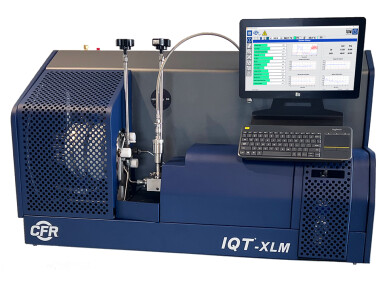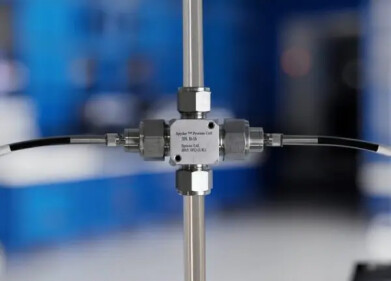Analytical Instrumentation
What's in Rocket Fuel?
Oct 13 2018
From the STS-1 launch at the Kennedy Space Centre on April 12, 1981 to the 2018 SpaceX Falcon 9 take-off in Southern California, rocket science has captivated the world for decades. In fact, history has revealed that the first rockets, which were essentially fireworks, were launched by the Chinese in the 13th century.
The power of liquid oxygen
Unsurprisingly, it takes more than average grade petroleum to power enormous space vehicles like NASA's Northrop Grumman Pegasus XL rocket, which is set to take flight later this month. Today, modern space rockets run on either liquid or solid fuel. Liquid powered rockets usually rely on LOx, also known as liquid oxygen, as well as either kerosene or liquid hydrogen. The combination offers results both in space and on the ground and has been the cocktail of choice for high-profile launches like the Saturn V and Falcon rockets. It was also used to power the Space Shuttle’s main engines. Other variations on LOx include nitrogen tetroxide or hydrogen peroxide, which both act as oxidisers.
Solid fuel favoured by military operations
Compared to its liquid counterpart, solid rocket fuel is cheaper to produce and easier to handle, as none of the materials need to be chilled to cryogenic temperatures. It's popular in military applications and is also used during trials and initial phases of space rocket missions. Powdered aluminium is the main element, mixed with an oxidiser, usually ammonium perchlorate, to ignite a burn. The reaction is so intense that's solid fuel is often used in booster rockets to give spacecraft an extra kick when blasting off.
Finding a perfect balance
Regardless of whether a rocket is being powered by liquid or solid fuel, all spacecraft follow Newton's Third Law, which states that every action triggers an equal and opposite reaction. Chemistry lies at the heart of rocket science, with scientists aiming to find a perfect combustion reaction that expels energy from one end and in turn, propels the rocket off its launchpad and into space. Without the perfect combustion equation, the rocket won't generate enough velocity to release itself from Earth's gravity.
From space exploration to chromatography, scientific breakthroughs are powered by innovation and next-generation technology. For a closer look at the latest petroleum industry advances don't miss 'Optimised for Speed and Accuracy: ASTM D2887 Option b' which spotlights the new Clarus® 690 Gas Chromatograph.
Digital Edition
PIN 25.5 Oct/Nov 2024
November 2024
Analytical Instrumentation - Picturing Viscosity – How Can a Viscometer or a Rheometer Benefit You? - Sustainable Grease Formulations: Evaluating Key Performance Parameters and Testing Method...
View all digital editions
Events
Dec 03 2024 Dusseldorf, Germany
Dec 08 2024 Anaheim, CA, USA
Turkey & Black Sea Oil and Gas
Dec 11 2024 Istanbul, Turkey
Dec 19 2024 Aurangabad, India
Jan 20 2025 San Diego, CA, USA



















